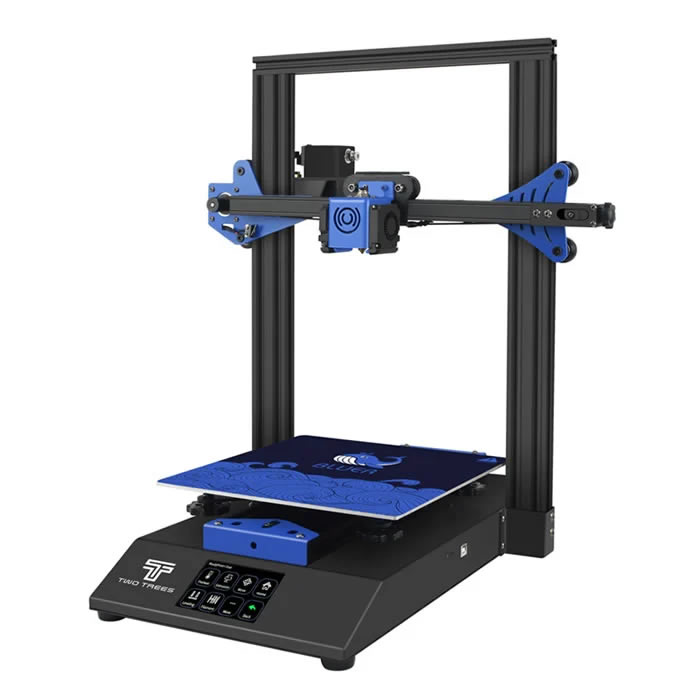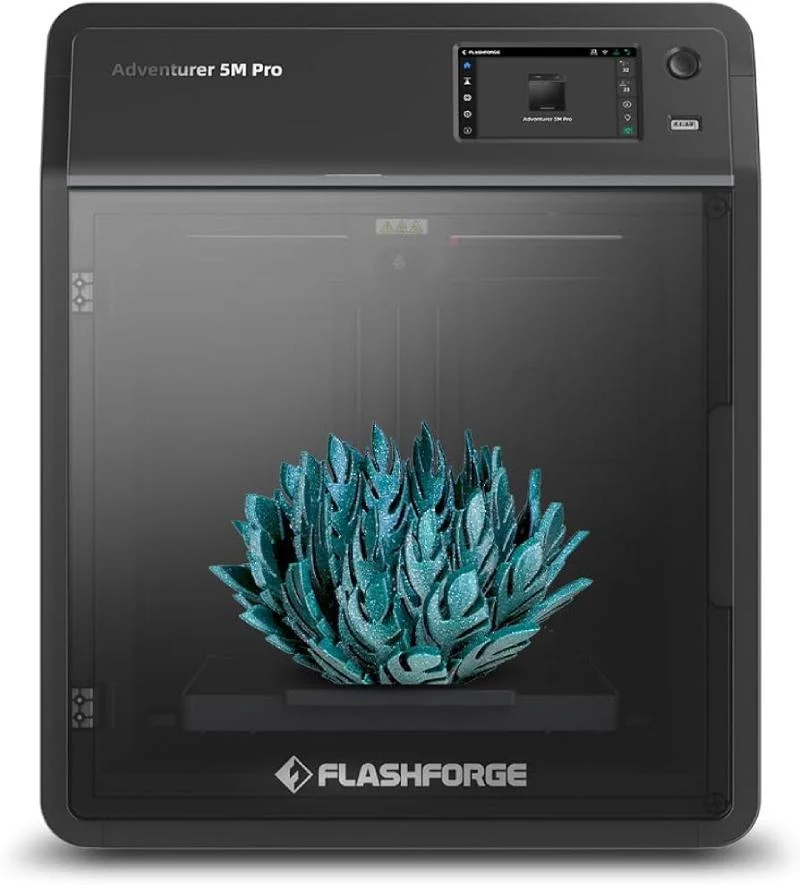Compare Bluer vs Adventurer 5M PRO
Comparison between the best 3D printers
Choose the best 3D printer at the best price. The cheapest 3D printers are here.
Buy a 3D printer here with 3D Fila.
 |
 |
|
| Model | Bluer |
Adventurer 5M PRO |
| Printing Material | Filament | Filament |
| Buy Filament for TwoTrees Bluer | Buy Filament forFlashforge Adventurer 5M PRO | |
| Estimated price | $169,00 | $599,00 |
| Manufacturer | TwoTrees | Flashforge |
| Release Year | 2019 | 2023 |
| Print Volume [mm] | 230x230x280 | 220x220x220 |
| Printer Size [mm] | 400x410x520 | 380x400x453 |
| Weight [kg] | 8 | 10,8 |
| Power Loss Recovery | YES | YES |
| Enclosed printer | NO | YES |
| Bed Leveling | Manual | Automatic |
| Filament End Sensor | YES | YES |
| Bed type | Heated | Heated |
| Power supply system | Bowden | Direct Drive |
| Standard nozzle | 0,4 | 0,4 |
| Maximum Nozzle Temperature [°C] | 260 | 280 |
| Maximum Bed Temperature [°C] | 100 | 110 |
| Maximum printing speed [mm/s] | 200 | 600 |
| Filament holder | YES | YES |
| Camera for supervision | NO | NO |
| Recommended filaments | PLA, PETG | PLA, PETG, TPU, PLA-CF, PETG-CF |
| Recommended slicers | Cura, Simplify, Slic3r | FlashPrint 5 |
| Maximum Resolution [mm] | 0,1 | 0,1 |
| Processor | MKS Robin Nano V1.2 + TMC2208 | |
| Display | Touchscreen TFT 3,5'' | Touchscreen 4,3'' |
| Power Supply | 240W | 350 W |
| Connectivity | SD / USB | Wifi / Ethernet / USB |
| Operating systems | Windows, Mac, Linux | Windows, Linux, Macbook |
| Date of registration in the system | 2021-09-20 | 2024-07-09 |
| Release date | 2019 | 2023 |
| Extra features | The Bluer offers interesting features such as automatic bed leveling, a 3.5-inch color touchscreen for easy operation, and a filament sensor to prevent print failures. It has a robust metal extruder and a generous 230 x 230 x 280 mm print volume, suitable for a variety of projects. The community mentions improvements made by Two Trees based on feedback, increasing its reliability. | The Flashforge Adventurer 5M PRO features advanced features such as a CoreXY motion system, direct drive extruder, print speeds of up to 600mm/s and maximum acceleration of 20,000mm/s². It features fast nozzle changes, automatic calibration, active vibration compensation, camera monitoring, time-lapse video, HEPA and carbon filters for particles and VOCs, and an intuitive 4.3-inch touchscreen interface. Ideal for printing materials such as PLA, PETG, ABS and TPU. |
| Support for multiple colors and materials (AMS and CFS) | NO | NO |
Notes * |
||
| Cost-benefit | 7 / 10 | 7 / 10 |
| Hardware | 2 / 10 | 3.5 / 10 |
| Tela | . | . |
| Print volume | 3 / 10 | 3 / 10 |
| Performance | 2 / 10 | 5 / 10 |
Conclusion |
| In the comparison between the TwoTrees Bluer and the Flashforge Adventurer 5M PRO, several key factors emerge that can help potential buyers make an informed decision based on their needs and budget. The TwoTrees Bluer is significantly more affordable, making it an attractive choice for hobbyists and those new to 3D printing. It offers a decent print volume, essential features like a filament sensor, and manual bed leveling, which is adequate for simple projects. Its lightweight design and heated bed are also positive aspects, though it lacks an enclosed structure, which may limit printing materials and environments. On the other hand, the Flashforge Adventurer 5M PRO justifies its higher price with a plethora of advanced features designed for serious users. This includes automatic bed leveling, a direct drive extruder, and high-speed printing capabilities. Its enclosed design enhances safety and enables a broader range of filament types, providing additional functionality for more demanding projects. Moreover, the inclusion of a robust motion system, HEPA filters, and a larger power supply further underscore its suitability for professional applications. In summary, if budget constraints are a priority and the user is looking for a straightforward, reliable device for basic printing tasks, the TwoTrees Bluer is a commendable choice. However, for users who require enhanced performance, versatility, and refined features suited for a professional environment, the Flashforge Adventurer 5M PRO represents a worthwhile investment despite its higher cost. Each printer has its own strengths, making the ultimate decision dependent on individual needs, usage frequency, and project complexity. |

